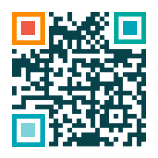The Moneyhub Open Data Cheat Sheet
For many,
navigating the new digital world of data, legislation, and consumer consent can
be daunting. At Moneyhub we believe that by opening up data, you open
possibilities. The benefits to both consumers and businesses are far reaching
and will touch every industry.
Are you and your business ready? If you’re not sure where to start, or don’t
feel up to speed, don’t worry. Here’s our Open Data Cheat Sheet on everything
you need to know.
Read on to learn about:
Open Data – The four things you need to know
What's Possible with Open Data
The Future of Open Data
Open Data - The four things you need to know.
It started
with Open Banking when regulatory changes (PSD2) in the
banking sector required banks and other payment account providers to
open their payments data when customers consented. This empowered
consumers to instruct their bank to share their data with authorised
businesses like Moneyhub via standardised APIs. The aim was to drive
innovation within financial services and, ultimately, to create more
competitive products for customers.
When this technology expanded into other financial areas such as
mortgages and pensions, we called this Open Finance. This allowed
companies like Moneyhub to help customers truly understand and manage
their financial world.
We have now progressed exponentially, and Open Data enables the wider
integration of consumer information across all industries, including
sectors like healthcare, retail, and government.
Open Data,
like Open Finance and Open Banking before it, is delivered via
Moneyhub's secure infrastructure and allows you to connect seamlessly
and directly via a single source to thousands of institutions in 37
countries. Businesses can get a unique and holistic insight into
consumers’ habits, needs, behaviours, and aspirations and consumers can
access all this information in one simple platform.
All data is gathered with consumer consent, so it is completely
compliant and the user is always in control.
Platforms
such as Moneyhub can bring this data together in one place and
with the insights gained businesses can make super-personalised offers
on products and services, send notification nudges and enable bank based
payments, in a way that is exceptionally relevant.
The benefits of this are huge for businesses and their customers - with
the potential to revolutionise how companies engage with consumers. For
example, consumers regularly cite applying for a mortgage - alongside
moving house - as one of the most stressful life events. With Open Data, the whole process of getting customer information, recommending the right product and using fair affordability checking, can be done in one simple process digitally, which is a revolution for the industry.
By seeing
accounts and assets in one place consumers can better manage
outgoings, receive useful notifications that support their lifestyle
goals, and find products that help them.
Imagine a world where smart nudges recognise you’ve booked a holiday and
also see that your annual travel insurance is about to expire, helping
you sign up for a new policy and pay in a simple click powered by
bank-based payments.
See what's possible with Open Data
Experience Open Data for your financial world
The real power of Open Data is the scale and breadth of information that can be brought together in one place with everything from your clubcard, to utility bills and health data.
You can experience a taste of what Open Data means for your own financial world via the Moneyhub app. Try it now?
See Open Data in action
Download our brandable, award winning app, connect your accounts, and see your financial world in one place powered by our APIs.

Make a bank based payment by donating to a good cause
The first step towards Open Data was Open Banking. Open Banking is more than just bringing information into one place - it’s about making a bank based payment instead of using credit or debit cards.
Bank based payments are faster than Direct Debit, more cost efficient than paying by card and are rapidly revolutionising the payments world. The innovations made possible with Open Data will be tenfold.
Pay using open banking
Experience an Open Banking payment journey - live - by donating to our local charity DigiLocal.

The Future of Open Data

Variable Recurring Payments (VRPs) and why they matter
VRPs mark the beginning of a new era for banking and will open up safer, faster, and more cost-effective payment journeys for consumers. In a nutshell, VRPs are small payments that take place at regular intervals for a varying amount - directly from your account.
We will see VRPs supplement and replace legacy payment methods such as Direct Debits and cards on file. This is a huge change for the market, but bigger changes are likely to come in the future as VRPs mature and innovative new services emerge.
VRPs can be used to create rules that move money automatically between bank accounts in certain pre-planned circumstances, for example, moving money from savings to current account to avoid going overdrawn, or freelancers using ‘sweeping’ by VRP on income, to set money aside for tax purposes.